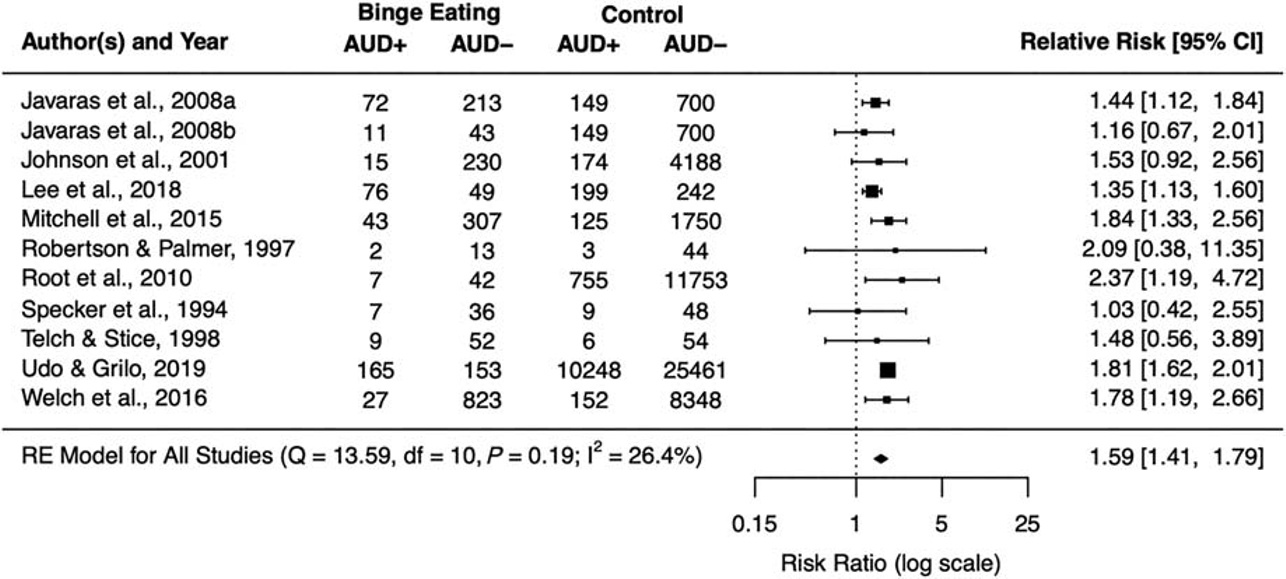Prevalence of alcohol use disorder among individuals who binge eat: a systematic review and meta-analysis
Alcohol abuse, alcohol dependence, alcohol use disorder, binge eating disorder, meta-analysis, systematic
review.
Abstract:
Background and Aims: Binge eating disorder (BED) is correlated with substance use. This study aimed to estimate the life-time prevalence of alcohol use disorder (AUD) among individuals with non-compensatory binge eating and determine whether their life-time prevalence of AUD is higher than in non-bingeing controls.
Design: A systematic search of databases (PubMed, Embase andWeb of Science) for studies of adults diagnosed with BED or a related behavior that also reported the life-time prevalence of AUD was conducted. The Preferred Reporting Items for Systematic Reviews and Meta-Analyses (PRISMA) protocol was followed. The protocol was registered on the International Prospective Register of Systematic Reviews (PROSPERO). Setting Studies originating in Canada, Sweden, the United Kingdom and the United States.
Participants: Eighteen studies meeting the inclusion criteriawere found, representing 69233 individuals.
Measurements: Life-time prevalence ofAUD among individuals with binge eating disorder and their life-time relative risk of AUD compared with individuals without this disorder.
Results: The pooled life-time prevalence of AUD in individuals with binge eating disorder was 19.9% [95% confidence interval (CI) = 13.7–27.9]. The risk of life-time AUD incidence among individuals with binge eating disorder was more than 1.5 times higher than controls (relative risk = 1.59, 95%
CI = 1.41–1.79). Life-time AUD prevalence was higher in community samples than in clinical samples (27.45 versus 14.45%, P = 0.041) and in studies with a lower proportion of women (β = -2.2773, P=0.044).
Conclusions: Life-time alcohol use disorder appears to be more prevalent with binge eating disorder than among those without.

